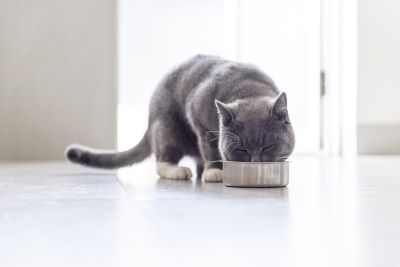Why good pet food matters for cats and dogs

Did you know that with each passing year, pets are living longer, healthier lives? According to the European Pet Food Industry Federation (FEDIAF), improved nutrition is adding years to our dogs’ lives, and life to their ‘dog years’. This is because the pet food industry is evolving and improving as knowledge of pet nutrition and food technology grows. It just goes to show that what you feed your pet really matters.
A healthy diet
A healthy diet is as important for our four-legged friends as it is for humans. While cats and dogs have different nutritional needs, a healthy diet looks pretty much the same for both of them. Cats and dogs need a diet that is ‘complete’, appropriate for their stage in life, and one that is produced by a manufacturer approved by the FEDIAF, that way you’ll know that what you’re putting in front of them meets a higher standard of quality than what is legally required by law.
What our pets need
Just like us, dogs and cats need a variety of nutrients to keep their bodies functioning properly. These include protein, carbohydrates, fats, vitamins, and minerals. When their diet is lacking in any of these, they can develop a range of health problems, from skin and coat issues to digestive problems and even more serious illnesses.
So, let’s take a closer look at what a healthy, balanced diet looks like for cats and dogs. It should include:
- High-quality protein sources: Protein gives cats and dogs energy, it keeps their muscles and tissues healthy and supports immunity, enzyme synthesis and hormone production. Cats are known as obligate carnivores, meaning that a meat-based diet is vital for their well-being. Dogs on the other hand are classed as omnivores, meaning they can eat and digest plant-based foods as well, but providing them with a largely meat-based diet will bring the protein they need to keep them in tip-top condition
- Fats: Fats are a good source of energy. They help with vitamin absorption, keep their skin in good condition and their coat nice and shiny
- Carbohydrates: Cats have less dietary need for carbohydrates than dogs, but the carbohydrates found in their food will help keep their energy levels up
- Vitamins and minerals: Cats need vitamin A for healthy vision and skin; vitamin D for their bones; vitamin E as an antioxidant as well as taurine, an amino acid that is important for eye and heart health. Dogs need vitamins A, D, and E too, plus B vitamins such as thiamine, riboflavin, and niacin, which are important for energy metabolism. Dogs also need calcium and phosphorus to keep their teeth and bones strong, plus iron for healthy blood cells
Of course, the easiest way to ensure your pet is getting all of the above is to buy them high-quality, balanced and complete food. Look for brands that use whole, natural ingredients and avoid artificial preservatives and additives.
The importance of water
Your pet should always have access to cool, clean water, even when it’s not dinner time. Water keeps your furry friend cool and hydrated. Keep in mind for cats that cow’s milk is not a substitute for water.
So next time you’re dishing up dinner for your pet, you’re not just putting a smile on their face and food in their belly, you’re helping to give them their best shot at a long and happy life.
